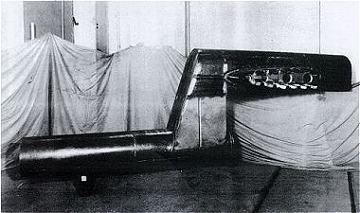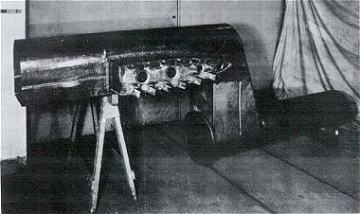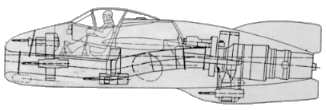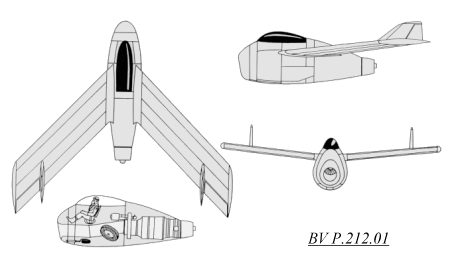
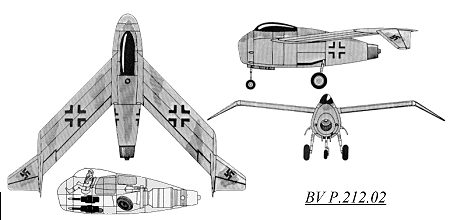
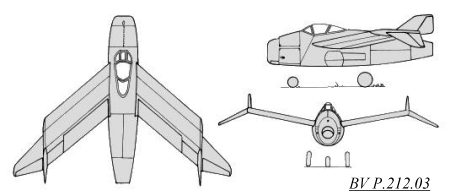 |
By the end of
1944, the OKL (High Command of the Luftwaffe) realized that a better high-altitude
fighter was needed, and they wanted to take advantage of the new He S 011
jet engine which was being developed. Thus, the Emergency Fighter Competition
came into being. By February 1945, three proposals had been received from
Messerschmitt, two from Focke-Wulf and one each from Heinkel, Junkers and
Blohm & Voss.
The Blohm & Voss entry was the BV P.212.03. The first of the BV P.212 designs featured a short, squat fuselage, with a short air intake to the He S 011 jet engine in the fuselage rear. The wings were swept back at 45 degrees, and featured a small amount of dihedral. Two small vertical fins were located near the wingtips. The second of the BV P.212 designs was a refinement of the previous BV P.212.01. The fuselage was lengthened, and the wings now featured downturned wingtips in place of the wingtip fins of the BV P.212.01. The BV P.212.03 was the final design and the one presented to the OKL in the Emergency Fighter Program. The fuselage was again lengthened, with larger internal fuel tanks being installed. The wings were swept back at 40 degrees and featured pronounced dihedral. Both downturned wingtips and small fins and rudders were designed for the BV P.212.03. In addition, the wings were designed to be built out of either wood, steel or aluminum, although the first versions were to have the usual stressed skin steel construction. One interesting feature that Blohm & Voss designer Dr. Vogt used for many of his projects (BV P.209.01, P.210.01, P.211) that was also included in the |
|
| BV P.212.03 design was the bent steel air intake duct that
was also used as a fuselage inner load-bearing structure (see photo below).
A pressurized cockpit was designed for the pilot, and the armament load
could be varied greatly (see table below). 2700 liters (713 gallons) of
fuel could be carried, 2100 liters internally in the wings and fuselage
and 300 liters in two under wing drop tanks, giving an endurance of close
to four hours.
Although the Focke-Wulf Ta 183 was chosen for production in late February, three prototypes were ordered and construction began in May 1945, after exhaustive windtunnel and structural tests. The first aircraft was to make its first flight in August and the second aircraft was to be ready by September 1945 September 1945. Of course, the end of the war ended all construction. |
||
